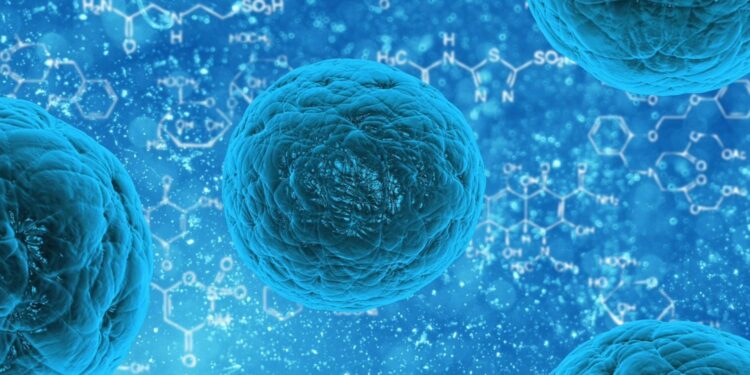Credit: CC0 Public domain
As people age or become ill, their immune systems may become exhausted and less able to fight viruses like the flu or COVID-19. In a new mouse study published in Scientists progressResearchers from Rong Lu’s USC Stem Cell Lab describe how specific genetic activity could potentially improve immune cell production.
“Hematopoietic stem cells, or HSCs, produce blood and immune cells, but not all HSCs are equally productive,” said the study’s corresponding author, Rong Lu, Ph.D., associate professor of biology. stem cells and regenerative medicine, biomedical. engineering, medicine and gerontology at USC and a fellow of the Leukemia & Lymphoma Society. “We wanted to understand the mechanism by which some stem cells produce more immune cells, while other stem cells produce fewer.”
With this goal in mind, first author Du Jiang, Ph.D., and colleagues in the Lu Lab at the Keck School of Medicine of USC developed new techniques to understand the quantitative association between Immune cell production and gene expression in the laboratory. mouse. Scientists have labeled individual stem cells with genetic “barcodes” to track their immune cell production. They then correlated the barcode tracking with measurements of gene expression activity. They also developed innovative bioinformatics approaches to characterize their quantitative association.
Taking advantage of these technical advances, scientists have identified nearly 40 genes, including genes associated with diseases such as myelodysplastic syndrome, a type of cancer caused by abnormal blood-forming cells, linked to the production of immune cells.
They discovered associations between the activity of these genes and the quantity and variety of immune cells produced. For example, some genes are associated with the production of lymphoid cells, others with myeloid cells, and still others with a healthy balance between various types of immune cells.
A few genes showed what the scientists described as a “consistent association” with lymphocyte production only. In other words, regardless of the level of lymphocyte production, gene expression was always associated with lymphocyte production.
A few other genes had a “discrete association” only with lymphocyte production. This means that gene activity was associated with lymphocyte production within a specific range of lymphocyte production levels.
Most often, genes would have a “unimodal or multimodal” association with the production of immune cells. In these cases, which involved both lymphoid and myeloid cells, gene activity was only associated with immune cell production at one or more specific levels of immune cell production.
“In this study, we show that most genes associated with immune cell production are only associated with specific levels of immune cell production,” said Jiang, who received his Ph.D. in the Lu lab. “Our results may inform strategies to optimize bone marrow transplantation, for example by selecting donor bone marrow cells whose genetic activity is associated with high and balanced levels of immune cell production .”
Other authors include Adnan Y. Chowdhury, Anna Nogalska, Jorge Contreras, Yeachan Lee, Mary Vergel-Rodriguez and Melissa Valenzuela of Lu Lab.
More information:
Du Jiang et al, Quantitative association between gene expression and blood cell production of individual hematopoietic stem cells in mice, Scientists progress (2024). DOI: 10.1126/sciadv.adk2132. www.science.org/doi/10.1126/sciadv.adk2132
Provided by the Keck School of Medicine of USC
Quote: Stem cell study shows how gene activity modulates amount of immune cell production in mice (January 26, 2024) retrieved January 26, 2024 from
This document is subject to copyright. Apart from fair use for private study or research purposes, no part may be reproduced without written permission. The content is provided for information only.



